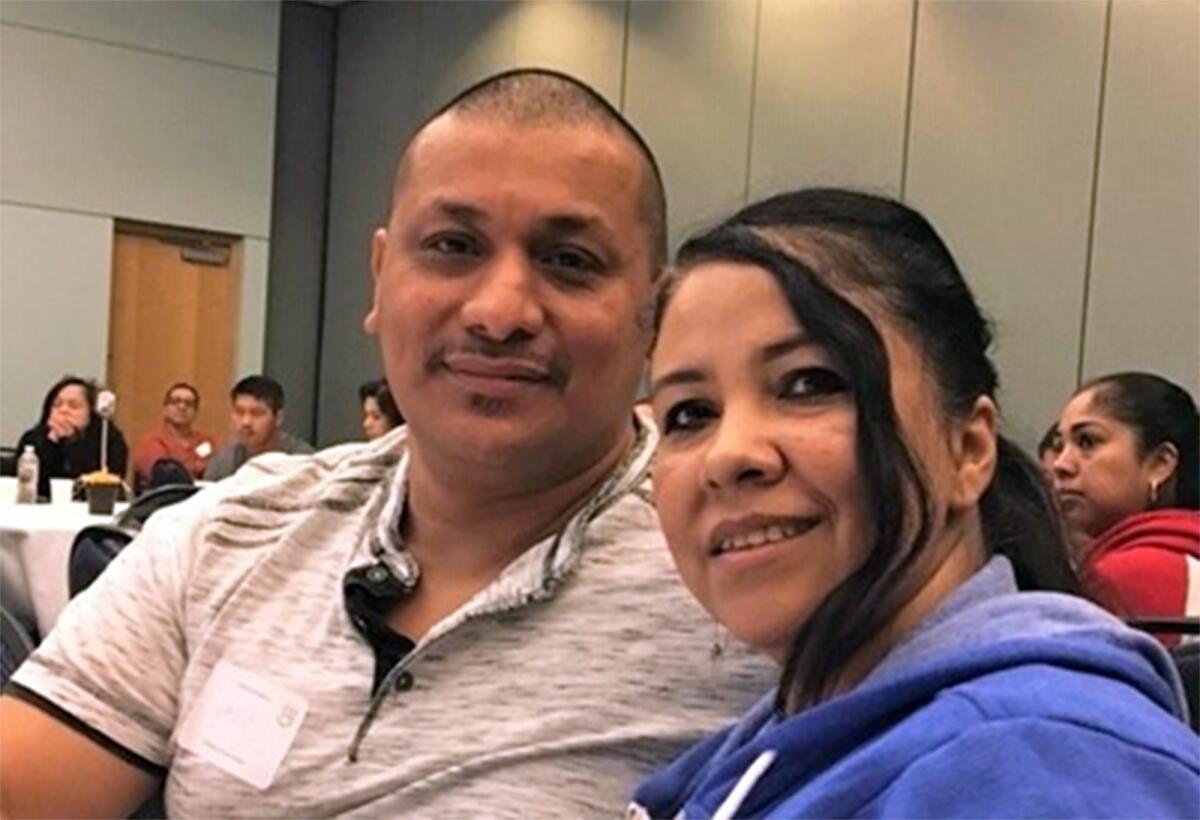Parents often don’t know what their college kids are going through. CSU is changing that
- Share via
It wasn’t a weekend concert or sports event that brought Vilma and David Martinez to the Cal State L.A. campus on a recent Saturday morning. Instead, they attended college for a day to learn about ways to encourage their son’s success at a university where only about half of incoming freshmen finish within six years.
They and 160 others who showed up for this “Parent Academy” are part of an effort to improve graduation rates, especially among students who are the first in their family to attend college. Parents increasingly are seen as partners with the university in supporting these young adults when they encounter emotional, bureaucratic, financial or academic obstacles.
Most colleges and universities these days offer summer informational sessions for parents and increasingly conduct Spanish-language versions, according to Amy Swank, who is president of Family Engagement in Higher Education, a national organization of 540 schools that provides parent programs. Many now have a parent relations office or parent webinars.
The Cal State L.A. Parent Academy, part of the widening parent involvement trend, began about six years ago and is offered three times during the school year on a campus whose students mainly commute from home. The university deliberately schedules the five-hour sessions well into the school year when student crises may occur and simultaneously conducts them in English or Spanish in separate rooms.
The workshops are seen as especially beneficial for the growing number of California students whose parents did not attend college.
“The transition from high school to university is a big change,” said Los Angeles resident David Martinez, whose son David is a Cal State L.A. freshman and the first in the family to attend a university. “Even though he is an adult and is capable of coming here and doing OK, it’s easier for him to make those changes with us behind him.”
A carpenter who was trained through his labor union at community college but who did not earn a bachelor’s degree, the elder Martinez said he attended the Saturday academy because “there’s a lot of dropouts, and we don’t want that to happen to our son.”
Such worries can be justified.

Across the 23-campus California State University system, nearly 2 of every 10 freshmen don’t come back for sophomore year. Only 28% of students who start as freshmen graduate in four years, although almost two-thirds graduate in six years. The numbers at Cal State L.A. are even more challenging: Only 11% finish in four years and 52% in six.
Aware of these challenges, some parents attended even though they are veterans of sending children to college. Among them attending the Spanish sessions were William and Damarys Lacayo, immigrants from Nicaragua whose son Elliott is a Cal State L.A. freshman. Two older children have finished college.
“We had some knowledge already, but it is always good to learn more,” said William Lacayo, a painting contractor who attended several years of college in Nicaragua before his education was interrupted by civil war.
Damarys Lacayo, who runs a skincare business, said that she wanted to be a sounding board for her son: “With all the stress they have in the new environment at the university, how can we help? Sometimes the most important thing is just to listen, don’t criticize and be more patient.”
In other cases, officials have to urge so-called helicopter parents not to hover so closely after high school.
Christopher Johnson, the university’s director of new student and parent programs, said the seminars try to let such parents know that they can still help but that they should “walk away a little and allow the students to be advocates for themselves.”
Still, some parents remain shocked that they no longer have automatic access to their children’s college academic and health records even though they often are financially supporting them.
No detailed study has tracked the college success of students whose parents participate in these types of programs around California and the nation, but experts say they think such sessions help, particularly in reducing risky behavior.
At Cal State Dominguez Hills, where more than half of the students are among the first in their families to attend college, eight parental sessions were scheduled last summer in both English and Spanish.
“Parents, like the freshmen, are transitioning,” said Doris Lee, associate director of outreach and school relations. They mainly want to know where a student can turn for help if needed, she said.
That is true “whether a parent never attended college or attended college 25 years ago and so much has changed that they need a refresher.”
Larry Gordon, a former reporter for the Los Angeles Times, is a staff writer for EdSource, a nonprofit journalism website covering education issues in California.
More to Read
Sign up for Essential California
The most important California stories and recommendations in your inbox every morning.
You may occasionally receive promotional content from the Los Angeles Times.













